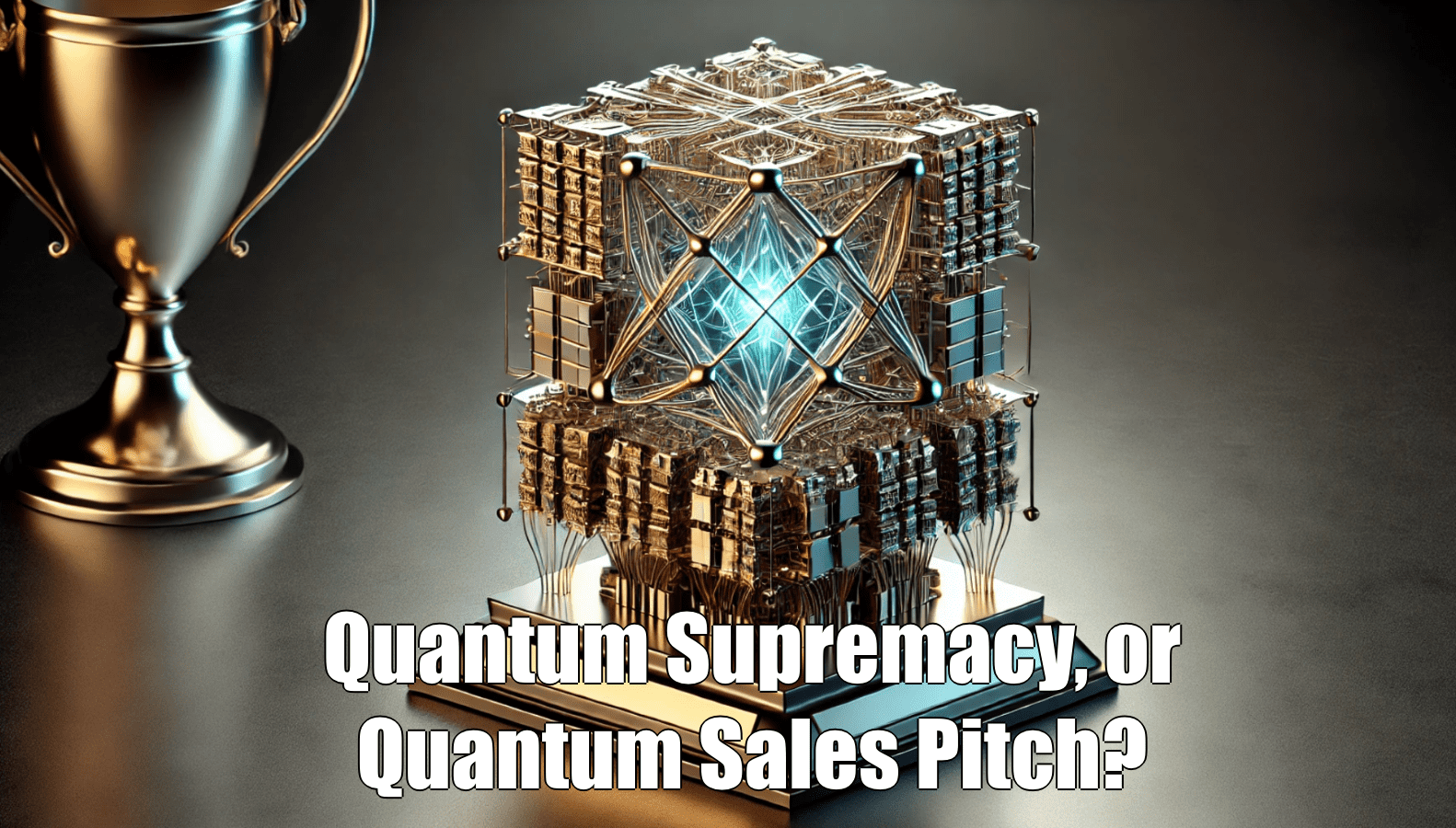Insider Brief
- Google’s 2019 announcement of achieving quantum supremacy sparked excitement and debate, highlighting the complexity and controversy surrounding the concept’s significance in quantum computing.
- Experts like Scott Aaronson, Sergey Frolov, Joseph Emerson, Gil Kalai and Shivaji Sondhi offer differing views on the meaning, feasibility and implications of quantum supremacy.
- While proving quantum computers’ superiority remains important, the term “quantum supremacy” is seen by some as less than an accurate scientific benchmark for measuring quantum’s progress.
In 2019 Google announced that its Sycamore quantum processor had performed a calculation in 200 seconds that would take a supercomputer 10,000 years. This achievement, described in the journal Nature, was touted as a milestone in quantum computing, a field poised to revolutionize various domains, from chemistry to finance. However, the reality of quantum supremacy has proven more complex and controversial than the initial excitement suggested.
Quantum supremacy, a term coined by John Preskill, a theoretical physicist, refers to the point at which a quantum computer can perform a task that is impossible, or at least infeasible, for a classical computer. But in the years following Google’s announcement, this concept has sparked intense debate among experts, as classical algorithms have been developed that challenge the results claimed by Google’s quantum device.
The concept of quantum supremacy, while captivating, remains a moving target, and experts are divided on its significance and even its feasibility.

Aventine, a non-profit research institute with a mission to shed light on how rapid technological advancements and disruptive changes will affect science and society, asked five noted quantum researchers for their opinion on quantum supremacy — what does it mean and does it matter?
Scott Aaronson: The Moving Target of Quantum Supremacy
Scott Aaronson, chair of computer science at the University of Texas at Austin, views quantum supremacy as a milestone that can be achieved, lost, and perhaps regained. He told Aventine that the ultimate goal is to find tasks where quantum computers definitively outperform classical ones, even if those tasks are not immediately practical.
“Those of us who do research in the subject have known from the very beginning that a quantum computer is only useful to the extent that it can beat a classical computer,” Aaronson told Aventine. “The thing that makes it so exciting is that there are a few very special problems where we are confident that eventually a quantum computer will beat a classical computer.”
Aaronson acknowledges that quantum supremacy is a “moving target” as classical algorithms improve.
“Quantum supremacy can be achieved and then unachieved later,” he said. “But all expect that we’ll eventually get to a place where quantum computers are just routinely doing things that classical computers cannot replicate within thousands of years or millions of years, and at that point, there’s no more arguing about it.”
Sergey Frolov: Quantum Supremacy as a Public Sales Pitch
For Sergey Frolov, a physics professor at the University of Pittsburgh, the concept of quantum supremacy is as much a marketing tool as a scientific benchmark. He suggests that the term was designed to capture public imagination and justify the continued investment in quantum research, even if the reality is more modest.
“Our way of communicating with the public is giving them sales pitches,” Frolov told Aventine. “One of the sales pitches, perhaps unfortunately named, was this quantum supremacy idea. The idea is really much less grandiose than the name would convey: Can a machine that we’ve built do something, anything, perhaps absolutely useless, but still better than the standard computers?”
Frolov believes that demonstrating quantum supremacy, even in a limited sense, could buy researchers more time to improve quantum technologies. “Can we demonstrate that quantum computers could potentially be useful sometime in the future? That would buy us some time to make them better,” he said.
Joseph Emerson: Quantum Supremacy as an Experimental Feat
Joseph Emerson, an associate professor at the University of Waterloo’s Institute of Quantum Computing, sees quantum supremacy as an important, albeit narrow, benchmark. He points out that while the term may have marketing connotations, it also reflects a significant engineering achievement.
“The term itself is something that different people use in different ways,” Emerson told Aventine. “These aren’t really scientifically very precise and defined terms, there’s a little bit of a marketing aspect to these terms that gets muddled up in the science.”
Emerson views quantum supremacy as a demonstration of the ability to maintain quantum coherence and entanglement over a large scale.
“When you’re doing the quantum supremacy experiment, you’re demonstrating the ability to maintain that magic over a large enough scale that you can do something that’s very hard for a classical computer,” he said.
Gil Kalai: Quantum Supremacy Might Be Unachievable
Gil Kalai, a mathematician and computer scientist at Hebrew University, takes a more skeptical view. He theorizes that quantum supremacy might be unattainable due to the inherent noise and instability in current quantum systems.
“Quantum supremacy is important both in its own right and as a benchmark or step toward something further,” Kalai said in his discussion with Aventine. However, he added, “My theory is that quantum supremacy cannot be achieved, and this is based on analysis of the stochastic behavior of samples coming from quantum computers in the intermediate scale.”
Kalai argues that the combination of noise-sensitive and noise-stable elements in current quantum computers makes achieving quantum supremacy unlikely. “If you have this combination, you cannot achieve quantum supremacy,” he concluded.
Shivaji Sondhi: A Physicist’s Perspective on Quantum Supremacy
From a physicist’s standpoint, Shivaji Sondhi, a professor at Princeton University, sees quantum supremacy as a reflection of our ability to control quantum systems. For Sondhi, the concept is less about outperforming classical computers and more about the complexity of quantum behavior.
“I’m a physicist, and I think for me there’s a somewhat different way of thinking about this,” Sondhi told Aventine. “What we are setting out to build are highly controllable quantum devices with a very high degree of control over how they can move in time. Quantum supremacy good enough for physics work would be that when this highly controllable quantum system is big enough that you just cannot predict its behavior in any reliable way using pen and paper or a classical computer, so that you have to deal with the device on its own terms, much as you deal with experimental systems.”
Sondhi believes that achieving this type quantum supremacy — where the behavior of quantum systems cannot be predicted by classical means — is a goal worth pursuing.
“That notion of quantum supremacy I personally find is the one that appeals to me, and absolutely a goal worth pursuing,” he said.














